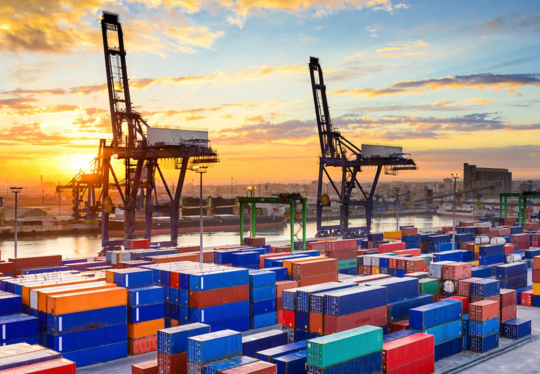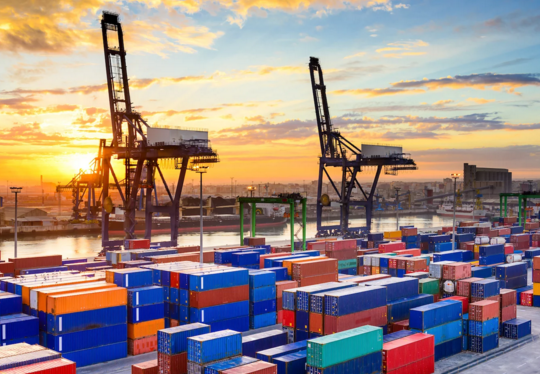
BEIJING, Oct. 9 (Xinhua) -- China has recently introduced a string of favorable policies and measures to keep the foreign trade stable, say analysts.
China decided to improve its export tax rebate policy to reduce the business burden and bolster foreign trade, according to a State Council executive meeting on Monday.
The current seven tax brackets will be cut to five, and some rates will be raised according to international common practice, said a statement released after the conference.
Effective from November 1, the 15-percent bracket and part of the 13-percent bracket will be lifted to 16 percent. The 9 percent notch will be adjusted to 10 percent or 13 percent, and the 5 percent tier to 6 or 10 percent.
From the measures of shortening customs clearance time and simplifying clearance procedures to the efforts of improving the export tax rebate policy and accelerating the export tax rebates, these will benefit the foreign trade enterprises, especially small and medium-sized enterprises, said Lao Guoling, a professor at Shanghai University of Finance and Economics.
In her view, by optimizing the tax refund service and realizing the electronic network coverage, it will further improve the multi-sector data sharing level and create a more transparent regulatory environment for cross-border e-commerce exports and other fields.
It is worth noting that at the meeting on Monday, high energy consumption and seriously polluting goods as well as those involved in industrial capacity cuts will see export rebate rates unchanged.
It is conducive to deepening supply-side structural reforms and prompting the domestic enterprises to optimize structure, achieve transformation and upgrading, and better realize quality-oriented development, according to Zhuang Rui, deputy dean of the Institute of International Economy under the Beijing-based University of International Business and Economics.
Meanwhile, tax refund procedures will also be simplified, with the year-end goal of shortening the average time needed from 13 work days to 10. Businesses with a good record will see an even faster and easier process. Paperless applications will be promoted, and service businesses will be encouraged to help tax refunds for small and medium-sized enterprises, according to the meeting on Monday.
According to the General Administration of Customs (GAC) in September, clearance documents subject to verification at ports will be reduced from 86 to 48 by November 1 this year.
In terms of the imports, China will reduce import tariffs on 1,585 taxable items starting November 1 to serve industrial upgrading, lower corporate cost and meet domestic demand, a State Council executive meeting decided in late September.
Since the beginning of this year, China has introduced a series of practical measures for foreign trade, according to its own economic development needs. It is not only conducive to achieving a higher level of opening-up, but also promoting healthy development of the global trade, said Zhang Yansheng, chief researcher of China Center for International Economic Exchanges (CCIEE). (Edited by Hu Pingchao, hupingchao@xinhua.org)




 A single purchase
A single purchase









